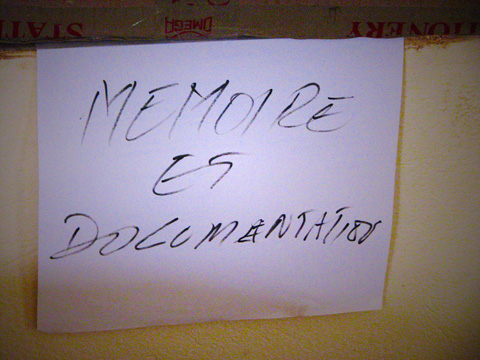
I see pictures of people, rising up
pictures of people, falling down
I see pictures of people
they’re standing on their heads, they’re ready
they’re looking out, look out!
they’re watching out, watch out!
“This is the Picture” from Peter Gabriel’s So
The Libraries efforts in the field of human rights continue to flourish.
The Human Rights Documentation Initiative (HRDI) has announced a new partnership with human rights video advocacy organization WITNESS to preserve and provide access to raw video footage of human rights abuses and video productions collected from the organization’s partners.
WITNESS was co-founded in 1992 by musician and activist Peter Gabriel with Human Rights First and the Reebok Human Rights Foundation to provide support to grassroots advocacy through the use of video as an integrated tool in human rights campaigns.
This is the sixth partnership in which the HRDI has become involved. Other projects include work with the the Kigali Genocide Memorial Centre in Rwanda, the Guatemalan National Police Archive, the Texas After Violence Project, Free Burma Rangers and the Museo de la Palabra y la Imagen.
As seen by the recent successes and widespread use of video by citizen journalists in the uprisings of the Arab Spring, the growth of civic media to fight injustice will continue apace.
You can see the full press release on the new collaboration here.
And here’s video of the Ted Talk where Gabriel explains the concept of WITNESS:
%CODE1%

